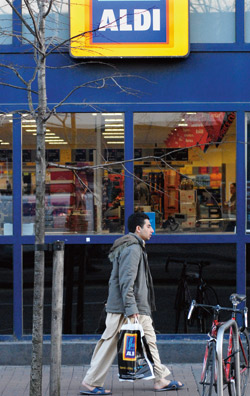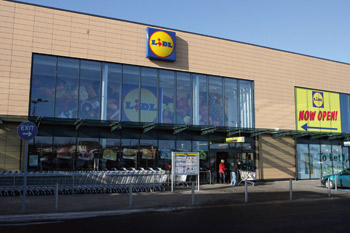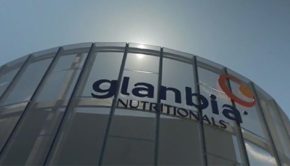Learning to love private-label

Dan White examines how the advance of the discounters in the Irish grocery market has persuaded shoppers to accept own-brand products
18 September 2012
Times are tough, consumers are keeping their hands in their pockets but the Irish food and drink industry is going through a purple patch. The challenge facing retailers is to team up with Irish suppliers to offer a value proposition that persuades shoppers to keep passing through the tills.
It’s not easy out there for retailers. The overall value of non-motor retail sales has fallen by 18% from its 2007 peak. Even the value of food sales, traditionally much less volatile than most other retail sales, have fallen by 6%.
As spending has fallen retailers have had to rethink the way in which they do business. Traditionally Irish shoppers spurned own-label products in favour of the branded item. That has changed drastically in recent years.
With the recession having eroded the budgets of even the best-heeled households, the proportion of the grocery market held by private-label has climbed from 30% in 2008 to 35% by the first quarter of 2012. Even where consumers are sticking with the branded product, they are increasingly shopping for discounts and/or promotions.
The rise of private-label
The rise of private-label has occurred in tandem with the rise of the German discounters Aldi and Lidl. Their combined market share has now risen to 12.4%, one eighth of the total grocery market.
Before the arrival of Aldi and Lidl at the turn of the century Irish shoppers, rightly or wrongly, generally perceived private label as being cheap and nasty. The fact that the name of one retailer’s own in-house range, “Yellow Pack”, had entered the vernacular as a synonym for shoddy and inferior spoke volumes about the low esteem in which most consumers held private label.
The Germans changed all of that. Even before the Celtic Tiger bubble burst in 2008 a growing proportion of Irish shoppers had come to appreciate the quality and value on offer at Aldi and Lidl. Indeed a sort of reverse snobbery developed as up-market shoppers boasted to their contemporaries of the unlikely bargains which they had bagged at the Germans.
Suddenly cheap was no longer necessarily nasty.

The rise of private label has occurred in tandem with the rise of the German discounters Aldi and Lidl
The recession turned what had been for many shoppers little more than a game of suburban one-up(wo)manship into a matter of grim necessity. With incomes having been slashed, many consumers having lost their jobs, taxes having been raised for those who were lucky enough to remain in employment and 400,000 homeowners stuck in negative equity, value rapidly replaced the old cachet of brands when doing the weekly shop.
Tesco private-label
The success of the German discounters in making private label acceptable to the vast majority of Irish shoppers encouraged the other grocery retailers to dust off their own private-label strategies. Ever since it took over Quinnsworth in 1997 UK retailing giant Tesco had been trying to persuade Irish shoppers of the joys of own-label.
It enjoyed only limited success during the boom years as cash-flush and purse-proud Irish shoppers insisted on buying the branded product, regardless of the price gap between it and the private label item. Despite Tesco offering shoppers not one but three private-label ranges, the proportion of its Irish sales accounted for by private label massively lagged those in the UK.
Once again it was the recession that provided Tesco with its private label opening. In 2009 as a combination of the recession and the weakness of sterling made itself felt at the tills, Tesco rejigged its Irish stores by cutting prices and increasing the proportion of private-label products on sale.
The change was a hit with shoppers with Tesco’s market share now up to 28.8%, more than 7% higher than its nearest rival Dunnes Stores, which has a 21.6% market share. With the stigma that had once attached itself to private-label now long gone other retailers are rolling out new private label ranges.
Latest to enter the fray has been Musgrave’s SuperValu chain, which wheeled out a new private-label range earlier this year.
During the early weeks and months of the recession, efforts by grocery retailers to increase the proportion of private-label products they sold were greeted with sometimes apocalyptic predictions about the likely impact on Irish suppliers. Tesco in particular came in for very heavy criticism following its 2009 store redesign.

Bumper years for food industry
Fortunately the prophets of doom have been proved to be almost completely wrong. The Irish food industry, buoyed up it must be admitted by strong international commodity prices, has enjoyed a couple of bumper years. Irish food and drink exports rose by a further 12% to €8.8bn in 2011 and are now 25% higher than they were in 2009.
In a chronically-depressed domestic economy food and drink has been the one indigenous sector that has consistently out-performed since the recession first struck in 2008. The move to own-label by Irish-based retailers has had none of the negative consequences so confidently predicted by many “experts” in 2009.
Quite the contrary in fact. Many retailers, not least Aldi and Lidl, have been emphasising the Irish origins of many of their private-label products. Without the name recognition of a heavily-advertised brand, retailers have been using Irish sourcing as a means by which to differentiate their private-label products from those of their competitors.
While it is easy to by cynical about this, a large proportion of private-label items are imported and will continue to be imported, private-label can work for suppliers as well as retailers. Most Irish suppliers will never acquire the scale that allows them to compete in the branded space with such behemoths as P&G, Nestle, Unilever and Kraft.
For Irish suppliers private-label offers a route to market which doesn’t entail the huge start-up costs associated with launching their own branded product. Yes, the retailers are harsh taskmasters, but it is they and not the supplier who is carrying most of the risk when they launch a new private-label product.
Judging by the performance of the food and drink sector since 2009, private-label is working for Irish suppliers and not against them.



 Print
Print






Fans 0
Followers